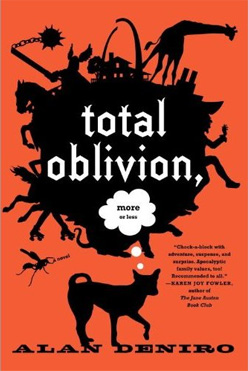Meekness and Introversion
For a long time I had willingly confused the two. It was a defense mechanism to confuse the two. I had considered in much of my childhood the biblical necessity of humility, meekness and poverty of spirit to be other phrases to describe shyness!
I’ve often wondered where the shyness has come to begin with. For many of my early years I certainly wasn’t. I would be rough and tumble with the best of them. But sometime in 3rd or 4th grade (of St. Boniface School, I might add) I developed another layer of interiority that was some form of fear and resentment on one hand, and imaginative foundation-building on the other.
These two seemed to go hand in hand. And thus, I saw my sense of being “nice” as a fair virtue. I wanted the world to be fair, too. The everyday cruelties that involve, well, just being a child-much less an introverted one-were overwhelming, and I had trouble engaging with them for many years. This only exacerbated itself in high school, earnest in Catholic prep school, fully ensconced in genre-land with science fiction and fantasy, and woefully lacking in the social skills needed to navigate the tauntings and lonliness that tended to form my almost-daily existence in those years.
Still, I thought that my “niceness” was a virtue, if not a form of power. I was nothing if not stubborn. That must have been the form of “meekness” talked about in Christianity!
Well, no, on two counts. The first count was that it was only a mask for deep, abiding (and honest, in its way) anger. It wasn’t very productive anger-since I was still paralyzed socially to do much to improve my conditions. It seemed impossible-but more than that, it wasn’t something on a base level that I WANTED to do. The abyss was too terrifying.
However, there was also something very passive aggressive about this “meekness.” I had used it as a way to hold back from others. It was a very convenient way to live for most of life, as it didn’t require me to ‘get my hands dirty’ with engaging with other people in (sometimes) uncomfortable ways. This was the flaw: I had used this sense of introversion as a source of pride. There was a desire for the abyss. (Zizek says here: “One would expect that fantasies are defenses against traumas. We have a traumatic experience, we cannot endure it so we build up a protective fantasy web of fictions. I claim that we invent, as a protective web, trauma itself.”) I had put myself above others, that the very fact that I had difficulty talking to others or making eye contact was a sign of specialness. A sign of my “niceness.” It was precocity, of course, but more than that. It was a sense of judgment, and anger born out of despair. That it was others’ fault for my own shyness.
This continued for many years. Beyond childhood. Beyond adolescence. In many ways it’s only in the last few years that I’m really beginning to untangle these threads. And also learning to forgive myself as well for living with this, and through this.
The promise that “the meek shall inherit the earth” appears in the Beatitudes (Matthew 5:5). At times as a teenager I earnestly put stock in this, that there would be a reversal of fortune, somehow, within the confines of high school (with strangely did start happening in my senior year). Needless to say the vagrancies of a highly structured adolescence-indeed, the entire idea of introversion-wasn’t exactly on the minds of anyone in the midst of Second Temple Judaism. But, as was most often the case, Jesus was drawing on much earlier traditions. He was tugging on a much older thread; specifically in this case, Psalm 37. Here’s the first 11 verses (NRSV):
Psalm 37
Do not fret because of the wicked; do not be envious of wrongdoers,
for they will soon fade like the grass, and wither like the green herb.
Trust in the Lord, and do good; so you will live in the land, and enjoy security.
Take delight in the Lord, and he will give you the desires of your heart.
Commit your way to the Lord; trust in him, and he will act.
He will make your vindication shine like the light, and the justice of your cause like the noonday.
Be still before the Lord, and wait patiently for him; do not fret over those who prosper in their way, over those who carry out evil devices.
Refrain from anger, and forsake wrath. Do not fret-it leads only to evil.
For the wicked shall be cut off, but those who wait for the Lord shall inherit the land.
Yet a little while, and the wicked will be no more; though you look diligently for their place, they will not be there.
But the meek shall inherit the land, and delight themselves in abundant prosperity.
The idea of meekness arrives full bore with the idea of abiding in the face of great evil and injustice. Our culture does put a huge emphasis on using aggression to correct perceived slights. This exhibits itself as a violence of spirit that I myself have fallen into-a shortness with people (if anything, an overcorrection of me perceiving myself to be “nice.”)
And the push and pull gets more complex. Certainly it does with writing. So much of one’s writing identity does not come from meekness (though it may come from an introversion that’s allowed to inverse itself online, into a vortex of bluster). False humility is the last refuge of the braggart, believe me, I’ve been there in moments of weakness and frailty. St. Diadochos (5th century) defined humility as “attentive forgetfulness of what one has accomplished.” Such an act is literally impossible in the sphere of cybernetics and information management.
But meekness isn’t weakness. And it’s not introversion. The “inheritance” is one of justice. It’s interesting that so much of the verses quoted above talk about meekness as an antidote for anger, not brashness per se. I feel that dejection in the fabric of the world, in the pockets of fascism rising up, in the equivocations of democratically elected leaders who seem incapable of steering the ship of state, in the ecological disasters that seem to be the next generation’s lot. The meekness I am beginning to uncover and open up inside of myself-as a project if nothing else-is that (1) gentleness towards others goes a long way, (2) my writing can only embody the grammar that is necessary for me, (3) introversion is one layer of who I am, but not the only layer, and any attempt to move beyond it is a good one, even if it fails, (4) there is fierce peace in patience.




